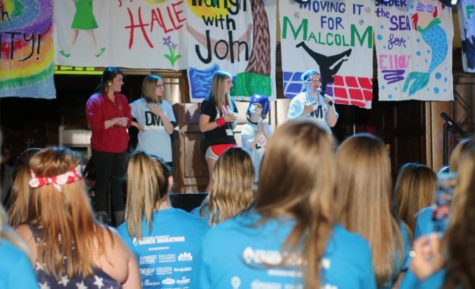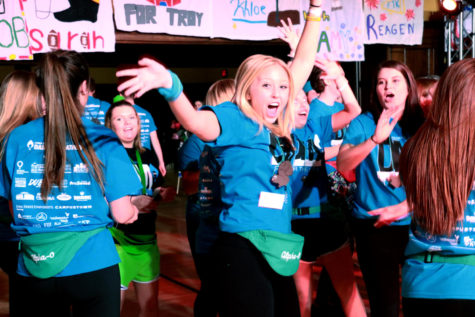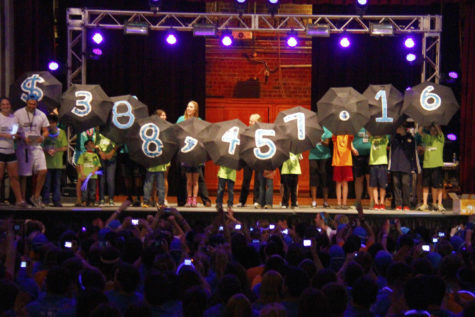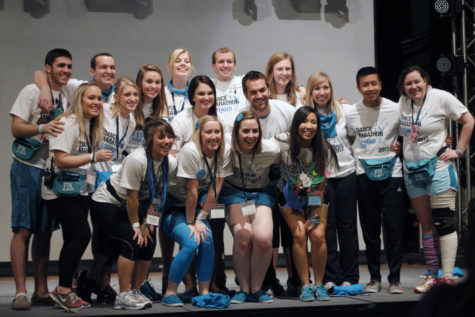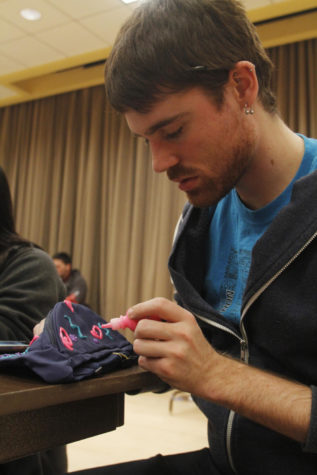Dance Marathon money helps Children’s Hospital
November 14, 2002
Editor’s Note: This is the second in a four-part series about what Dance Marathon does to help area children and their families.
Proceeds earned during Saturday’s Dance Marathon will help children across the country to cope both financially and emotionally with their treatment through the Children’s Hospital in Iowa City.
Katie Ogden of Zearing is one of these children.
Katie is an active 10-year old who suffers from the lifelong genetic disorder phenylketonuria, or PKU.
Phenylalanine, an amino acid found in the blood stream, builds up in patients with PKU, and can result in severe mental retardation and nervous system damage if not treated properly. Treatment of the disorder restricts the amount of protein Katie can consume.
Judy Miller, a certified nurse practitioner at the Children’s Hospital, works with Katie and her parents, Paul and Laura.
Miller said PKU is a disorder that costs money to regulate. Clinical visits up to two times a year for a patient Katie’s age, the cost of a daily metabolic formula and the cost of protein-substitute foods go hand in hand with treating this disorder.
A patient can regulate their diet without purchasing the protein-substitute foods, but metabolic formulas are necessary to maintain protein levels without increasing the amount of phenylalanine in the blood stream, she said.
Laura said the cost of Katie’s formula alone ranges between $4,000 and $5,000 per year. After adding in other food costs, medical visits and the cost of transportation from Zearing to Iowa City, the Ogdens have had financial difficulty carrying their own.
“Insurance only pays so much,” Laura said.
Insurance coverage varies from provider to provider, Miller said.
The problem with insurance is the companies look at the formula as a dietary supplement instead of a medication, even though the alternative to taking the formula is mental retardation.
There are many ways for the Ogdens and families with similar problems to seek help. This is where Dance Marathon comes into play.
Tom Klaus, an assistant director for Children’s Miracle Network, serves as a liaison between the organization and Iowa State’s Dance Marathon. Children’s Miracle Network provides funding for equipment and staff members from Dance Marathon proceeds, he said. Phone, gas and food cards are given to families as well.
The marathon has purchased a large-screen television for the outpatient specialty clinic so that children can watch movies while they wait, Klaus said.
Laura said the television is nice since Katie usually colors during the drive to Iowa City and needs a different activity to keep her busy at the clinic.
Dance Marathon also helps families throughout the year by providing fun activities for groups of students and families, Klaus said.
“[Children’s Miracle Network] tries to connect to their families in numerous ways,” he said.
“The activities act as a break from the daily routine.”
Katie, and other patients with PKU, lead normal lives, Miller said.
“[The treatment of PKU] sounds like a horrible lifestyle,” she said. “But children and adolescents with the disorder don’t feel like they’re missing out.”
Laura said she likes to work on a day-by-day basis and enjoy Katie as much as she can.
“There are worse things than managing a diet,” she said.






